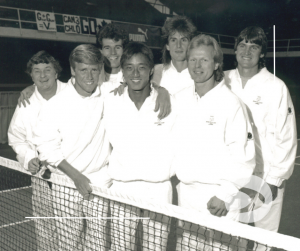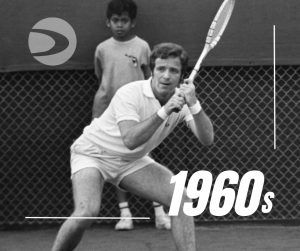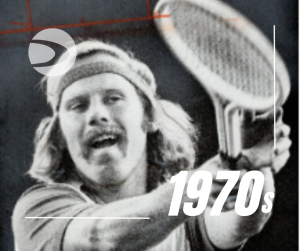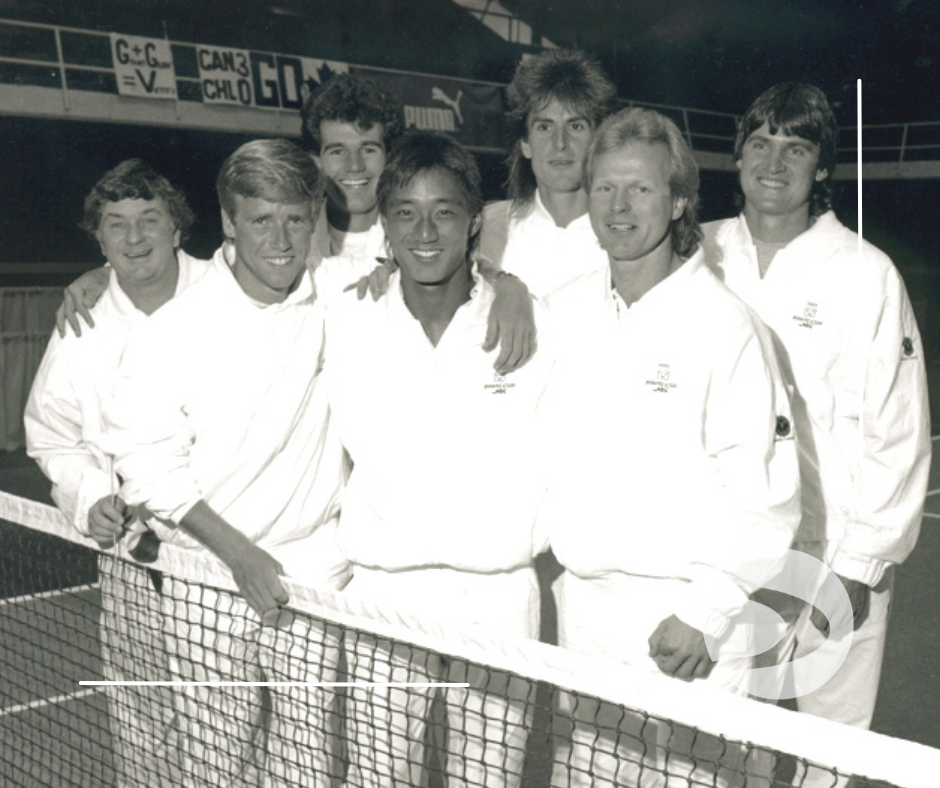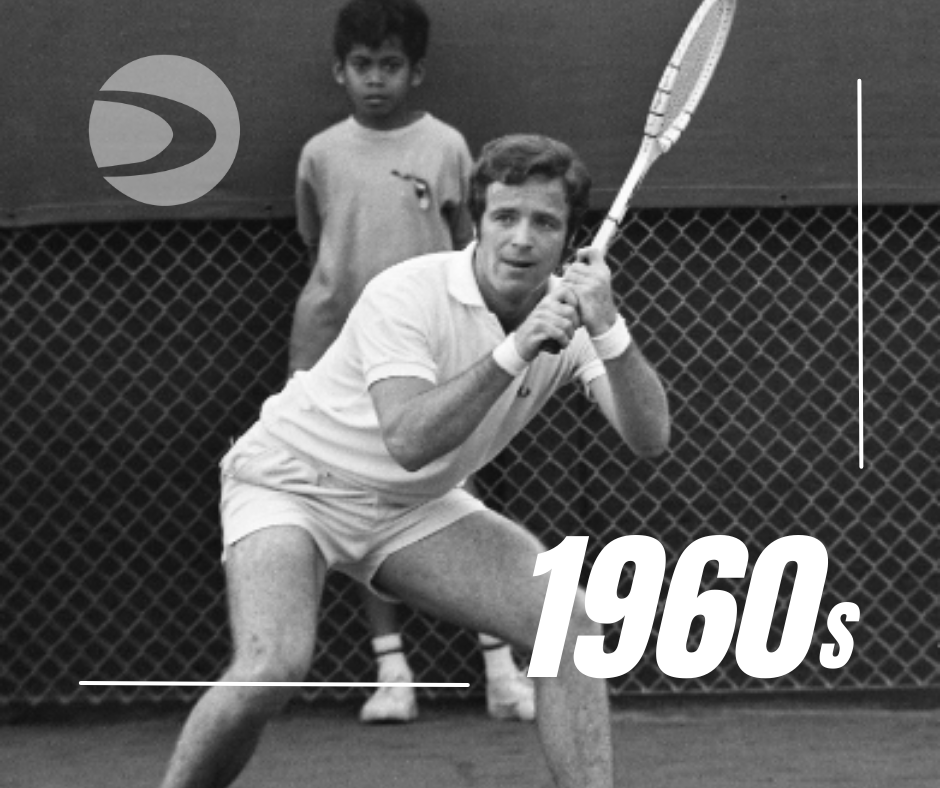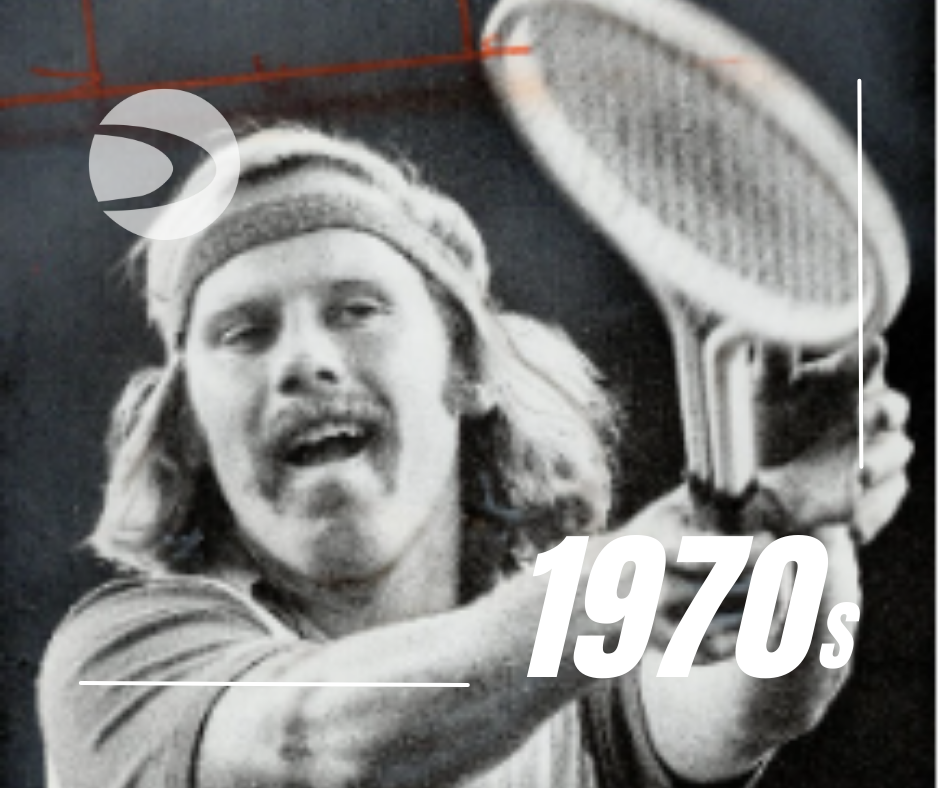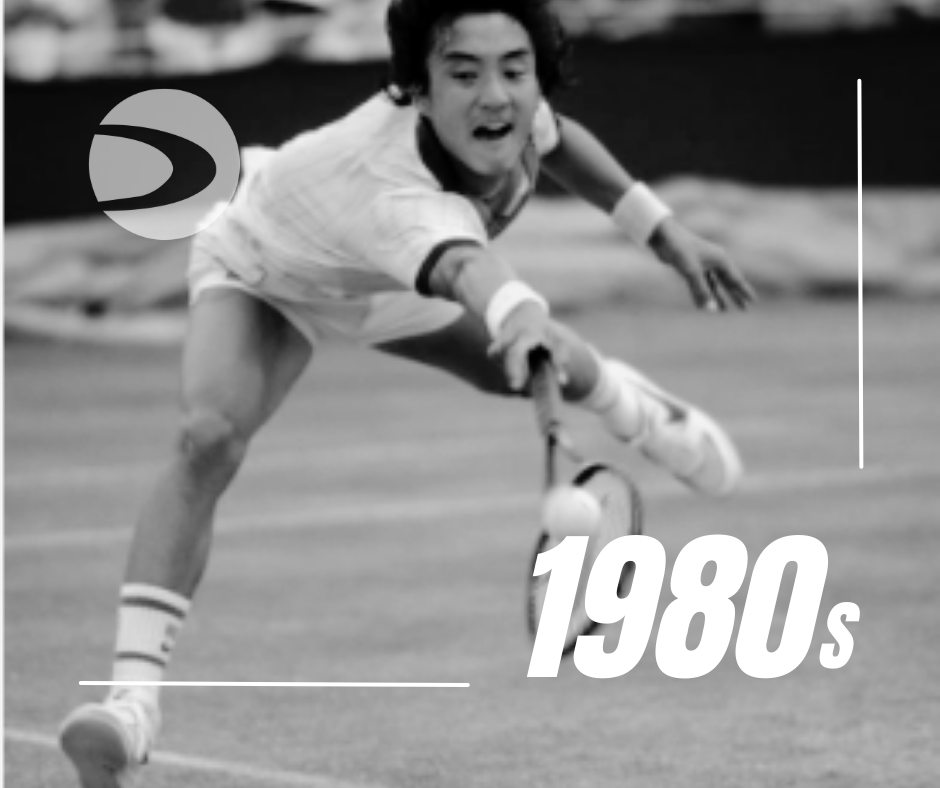This is the story of a Moroccan boy and his extraordinary mother and their incredible journey from North Africa to Canada. The result; love, triumph and above all, the courage to risk the odds and turn a tennis fantasy into reality.
The family moved to Canada in 2002 from Morocco. Up until Soufiane was 10 years old he played at the RUC Tennis Club in Casablanca where he and his parents were members. It was not safe to play tennis in public parks in Morocco so being a member of a club was a necessity for any young junior wanting to play tennis. Soufiane was always a great athlete and was good at any sport he played. His love of tennis came very early on at five years old when he began by finding any racquet he could get his hands on at the club and hit against the wall. He eventually would ask the ball boys at the club to play with him and soon enough he was noticed by the tennis Academy there and was playing tennis three times a week after school. Fatima explains that “Soufiane would just not stop playing, he never wanted to leave the club, he just wanted to hit and play for hours and hours, it didn’t matter who it was with.”
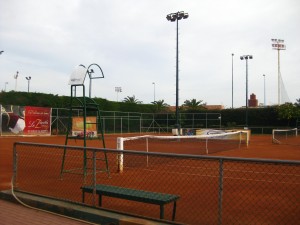
This is the very club, RUC tennis club in Casablanca, Morocco where Soufiane first held a tennis racquet and hit his first tennis balls.
The personal tennis journey of both Soufiane and Fatima are unveiled from these exclusive ONcourt Interviews.
ONCourt: Why tennis? Did you play any other sports growing up?
Soufiane Azargui: Tennis was a fun, competitive, and strategic sport that I took to quickly. Coaches were stunned at my ability to piece a point together, sort of like a chess match with various moves and they encouraged me to play more and more because I had a knack for it and they believed I could become very good. Soccer is a must for any kid living in Morocco, and I also took a liking to basketball as well but never as intensely as tennis.
ONcourt: What has been the most challenging thing about being a junior tennis player in Canada? How have you dealt with this?
SA: The most challenging aspect of being a junior tennis player in Canada is the lack in number of top tennis players in the country. Throughout my last 6 years as a junior, it was always the same top 5-6 guys always having their expected results. In Morocco, there were so many tough players, even at that early age, you never knew what was going to happen. To counter this, you just keep pushing yourself to get better, not relative to those other 4 or 5 guys. You play some other tournaments, like the ITFs around you, or any other tournaments nearby. When you’re successful in these tournaments, then you can afford to really travel and keep improving and playing different opponents.
ONcourt: How do you think tennis has help to shape the individual you are today?
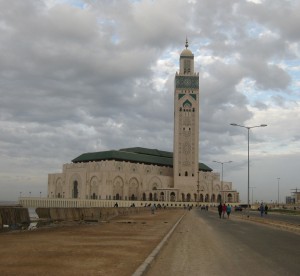
SA: Tennis is much more than just a sport. It has taught me many of the traits I possess today, like resilience, problem solving, determination, focus, work ethic, among others. It has made me a much more relaxed person off the court because I get to take out my competitive fire out on the court and leave it all out there.
ONcourt: Do you have any personal rituals or routines that you always do before a match? This could be anything from a special food that you eat, a shirt that you wear or something that you do right before a match?
SA: Definitely not, I am not a superstitious person but I do like to eat promptly 2.5 to 3 hours before a match. I also like to have bananas and bars in my bag with me and I occasionally will go out in a warm up shirt before switching but that is not a necessity.
ONcourt: Now being a University student how has your workout and tennis training regime changed? How many hours a week are you in the gym? How many hours a day do you play tennis? Has it been difficult to manage schoolwork with the demands of being on a University tennis team?
SA: Workouts and training regime have not changed, although a team aspect has definitely been added to that.
ONcourt: That must mean that you’re consuming a lot more calories during the day? Do you find it easy to eat enough while being a University athlete? What is your favourite post match or post workout food?
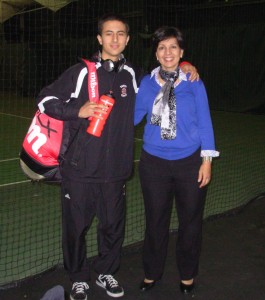
SA: I am consuming a ton of calories during the day. It’s not always easy because practice can conflict with dining hall hours but you still can manage getting enough to eat. The only poor thing is that University dining plans account for only 3 meals a day whereas I can 4-5. I don’t really care what kind of post match food I get as long as its filling. As to post workout, anything with a lot of protein for the muscles.
ONcourt: Are there any people in particular that have been most inspirational and influential in both your tennis career and in your personal life growing up?
SA: Earlier on in my childhood, my father was my inspiration. I liked the thought of becoming like him when I would grow to become a man. However, as of late, my mother, Harry Fauquier, and Pierre Lamarche have been the most influential people for me growing up because they have been with me every step of the way during this process to furthering my education and continuing my tennis career.
ONcourt: Do you see yourself playing on the tour?
SA: I mean it has always been a dream, and I’ve committed myself to this sport now more than ever and I plan on giving everything I got for the rest of my college career, on and off the court, to get better.
ONcourt: Do you have a mentor? How important would you say that having a mentor is?
SA: Yes, I do. I would have to say that my mentor is Harry Fauquier. I would say it is very important for any individual to have a mentor, not only junior tennis players, because it allows for you to confide in someone, to share issues or thoughts on certain things that you may have both went through, both on and off the court.
ONcourt: If you could give any advice to other aspiring young tennis players in Canada what would that be?
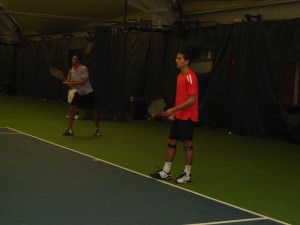
SA: If they asked me, I would say work your hardest so you have nothing to regret. I admit there were times I did not work as hard as I should, and I regret it. If you work hard and give it your all, don’t be afraid to fail. You have nothing to regret.
ONcourt: If tennis was not a part of your life, what would you be doing? Where would you be?
SA: I could not imagine my life without tennis but I probably would be gaining weight ! It’s so hard to practicing that much and working out that often. Other than that, I’m not sure what I would be doing. I might also be playing more piano and studying my languages more.
ONcourt: Fatima, could you tell from a young age that Soufiane was going to not just be a tennis athlete, but an athlete in general?
Fatima: Not really actually. Soufiane was always very active and he was always extremely good at whatever sport he chose to do. But tennis, I could just tell, he loved it. The passion for tennis was there from very early on. We used to play at the club and Soufiane’s stroller would sit beside the court and he would watch until one day he grabbed a racquet and jumped onto the court and started to play! The rest is history.
ONcourt: Did you ever think or predict that when you came to Canada Soufiane would grow and become a young tennis sensation and be on a tennis scholarship at Brown?
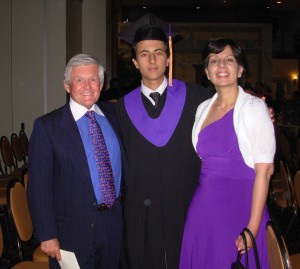
Fatima: I never thought about what the future held for Soufiane with his tennis. I always just followed his rhythm and supported him. He loved it, every second of it, so I just wanted to make sure he could always continue to play no matter what.
ONcourt: What has been the most difficult thing for you since moving back to Morocco now that Soufiane is in his first year at Brown University?
Fatima: I miss him so much it makes just living life really hard sometimes. It’s hard to live so far away from him, there is an entire vast ocean between us and it’s been a struggle, but I know he is happy and doing what he enjoys and loving life, so that makes me very happy.
ONcourt: In five to ten years from now, do you predict Soufiane will be playing tennis Professionally? If not, what do you think he will have chosen for himself to pursue?
Fatima: Soufiane can do anything he puts his mind to. You never know where he will end up, but whatever he chooses to do I know that he will be excellent at it. Whether he is in the tour playing tennis, or becoming a lawyer, doctor, owning his own business he is going to be just fine.

